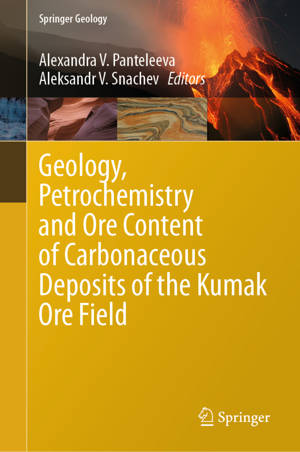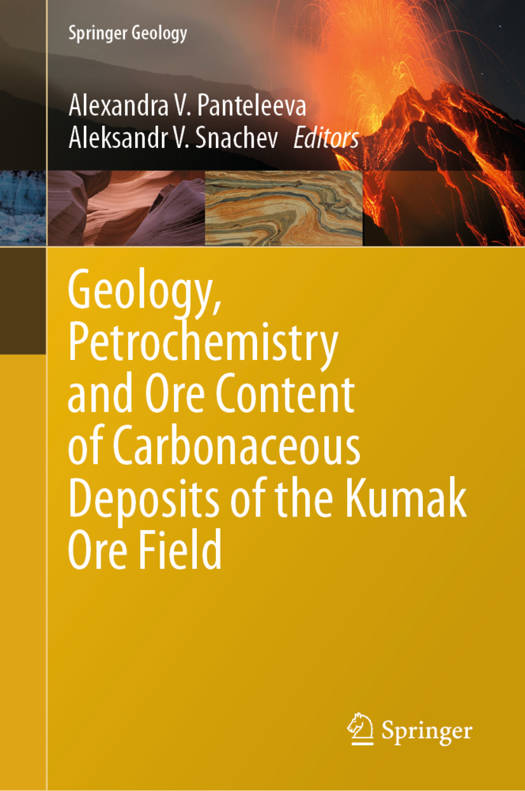
- Retrait gratuit dans votre magasin Club
- 7.000.000 titres dans notre catalogue
- Payer en toute sécurité
- Toujours un magasin près de chez vous
- Retrait gratuit dans votre magasin Club
- 7.000.0000 titres dans notre catalogue
- Payer en toute sécurité
- Toujours un magasin près de chez vous
Geology, Petrochemistry and Ore Content of Carbonaceous Deposits of the Kumak Ore Field
Description
The main prospects for expanding the mineral resource base of gold are associated with the discovery of typical ore objects within the distribution of productive black shale strata in the Orenburg part of the Southern Urals. The solution of this problem is significantly associated with the discovery, evaluation and involvement in the industrial development of gold deposits lying in the black shale strata. Their practical significance, based on existing concepts, can be considered in several aspects: first of all, it is a possible source of metals, and secondly, they are a reducing geochemical barrier for the deposition of ore matter of deep fluids. The formations of the black shale formation are a favorable geochemical environment for the primary concentration of gold, platinum group elements, tungsten, molybdenum and other metals. Areas of manifestation of tectonic activity, zonal and contact metamorphism, and the dyke complex are of great importance. Moreover, carbonaceous deposits are a very informative material for the reconstruction of paleogeographic and physico-chemical conditions of their accumulation.
In this regard, the ore-containing black shales of the Kumak deposit, whose rocks have a specialization in gold, seem to be a very attractive object for a comprehensive study of ore content. They may be of great practical importance for the search for new deposits in the Southern Urals and in other regions with a similar geological structure.
Spécifications
Parties prenantes
- Editeur:
Contenu
- Nombre de pages :
- 126
- Langue:
- Anglais
- Collection :
Caractéristiques
- EAN:
- 9783031609657
- Date de parution :
- 12-07-24
- Format:
- Livre relié
- Format numérique:
- Genaaid
- Dimensions :
- 152 mm x 224 mm
- Poids :
- 340 g

Les avis
Nous publions uniquement les avis qui respectent les conditions requises. Consultez nos conditions pour les avis.





